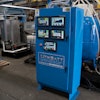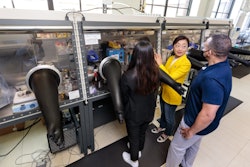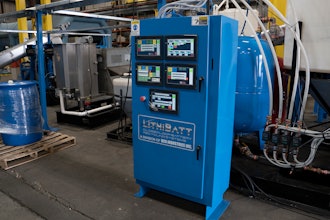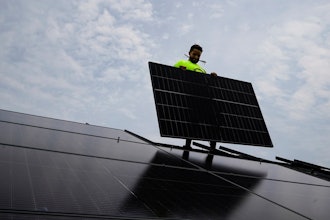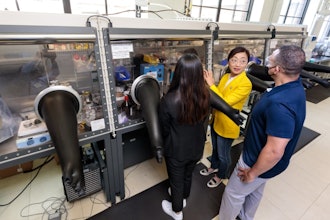HARTFORD, Conn. (AP) — A paper shipping box manufacturer owned by the Massachusetts parent company of the New England Patriots is running into opposition over its request for state grant money to generate electricity at its mill.
The Office of Consumer Counsel on Monday filed an objection with state utility regulators over a proposal by Rand Whitney Containerboard for a multimillion-dollar grant to increase power generation at Montville.
Rand Whitney is owned by The Kraft Group, which also owns the Patriots.
The General Assembly revised state law allowing companies to seek grants that would help finance electricity generation. The legislation intended to reduce the load on the regional power grid and improve energy efficiency.
More than 200 applications from schools, hospitals, companies and other organizations have been submitted to the state Department of Public Utility.
''We're talking little guys who operate machine shops, restaurants up to mega corporations,'' said Beryl Lyons, a spokeswoman for the Department of Public Utility Control.
But the Office of Consumer Counsel told the DPUC that the company has no right to seek a $6.4 million grant based on 14.2 megawatts at its power plant because its upgrade is by 1.9 megawatts to a 12.3-megawatt plant already online.
The consumer advocate says Rand Whitney is instead entitled to seek funding of, at most, $855,000.
''OCC is outraged by Rand Whitney's effort to obtain a grant from ratepayers reflecting the 12.3 megawatts that they had already decided to install in 2005 in their own economic interest,'' the state agency said.
James Cobery, general counsel for Rand-Whitney, said in a statement that the Office of Consumer Counsel misunderstands ''both the letter of the law as well as the intent of the law.''
The General Assembly intended that financial incentives should be available not just for electricity created now but also for future power generation, he said.
''Prior to this plant coming online, Rand Whitney purchased its power directly from the electric grid,'' Cobery said. ''That it no longer is drawing that amount of power from an over-stressed infrastructure and that Rand Whitney is willing to invest in more generating capacity to further reduce this burden are precisely the reasons behind these incentive programs.''

